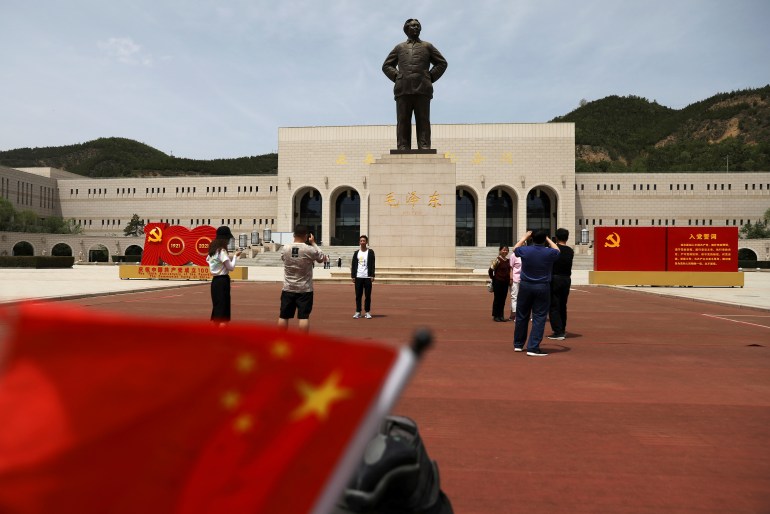What Russian President Vladimir Putin is doing against civilians in Ukraine is nothing new, two Western academics said, because tyrants have always been telling lies, and that the Kremlin's recent "lies" bear witness to history.
The Economist magazine quoted - on a recent book by academics: Sergei Guriev, a Russian economist and professor of economics at the Institute of Political Studies in Paris, and Daniel Triesman, a professor of political science at the University of California in Los Angeles - examples of what they described as lies, such as that Russia did not invade Ukraine, and that the Ukrainians are the ones who bomb their cities, and that their Jewish president is actually a Nazi.
And tyrants often resort to “terrorism,” so what Putin is doing to civilians in Ukraine is not new, “but the balance between lying and killing has changed, for contemporary autocrats the most important lie.”
In their book Spin Dictators: The Changing Face of Tyranny in the 21st Century, Guriev and Triesman show how this transformation occurred.
For most of the twentieth century, autocratic rulers flaunted their violence.
Leaders such as German-born Adolf Hitler, Soviet Joseph Stalin, and Chinese Mao Zedong massacred millions of people, and even less brutal tyrants like former Congolese President Mobutu Sese Seko hanged his government ministers in public, with the aim of terrorizing his people to force them to surrender to his rule, he said. book expression.
The authors highlight aspects of the contrast between what they call "tyrant rulers of fear-mongering", and "tyrants in the fabrication and misinformation industry" who kill fewer people and deny their actions.
The two argue that the second type of tyrant is now more common.
Fabricated tyrants claim to be democrats. They organize pluralist elections and rarely claim to have won more than 90% of the vote, as was the norm in the non-democratic regimes of the 1960s, 1970s, and 1980s.
They also falsify election results less frequently, but they fabricate them a lot.
The academics gave an example of this by the Hungarian Prime Minister Viktor Orban - who they describe as a great misleading and fabricator - when he changed the results of the 2018 elections, in which his party received less than half of the votes, to become two-thirds and win an absolute majority in Parliament.
"Deceitful and deceitful" tyrants rarely have a coherent ideology, but they use humor to pretend that they are noble and that their opponents are evil, and fear-mongers routinely censor newspapers, publications, and the media.
Conversely, tyrants of fabrication and disinformation allow a few "highly cultured and sparsely circulated" newspapers and publications of the opposition to continue operating, in order to appear to be respecting freedom of expression.
Visitors take pictures in front of a huge statue of Chinese leader Mao (Reuters)
The goal of the tyrant of fabrication, according to the book we are dealing with, is to pretend to allow political competition, while he intends to make the application of this almost impossible.
Instead of criminalizing dissidents from his regime, he puts them in prison on charges of non-political crimes such as fraud or rape, even though they are innocent of that.
Instead of banning opposition parties, it exposes them to routine procedures or leads them to bankruptcy by imposing fines on them and involving them in legal cases.
In their book, Guriev and Triesman suggest on the "free" world the adoption of a policy based on what they call "hostile rivalry", and the need to watch closely for any signs that leaders - even among those who follow that world - unjustifiably usurp power in their countries, or undermine their institutions.
In the view of the book's authors, the "arsenal of deception" is a very effective means of keeping "malicious" leaders in power, and perhaps this is one of the reasons for the decline of democracy globally during the past decade, and if this type of rulers remains in power, they will often increase their repression.
Putin may be less brutal than Stalin, but after three decades in power he has transformed from a "fabricated and misguided" leader to a leader who spreads fear and terror, as The Economist described it.

